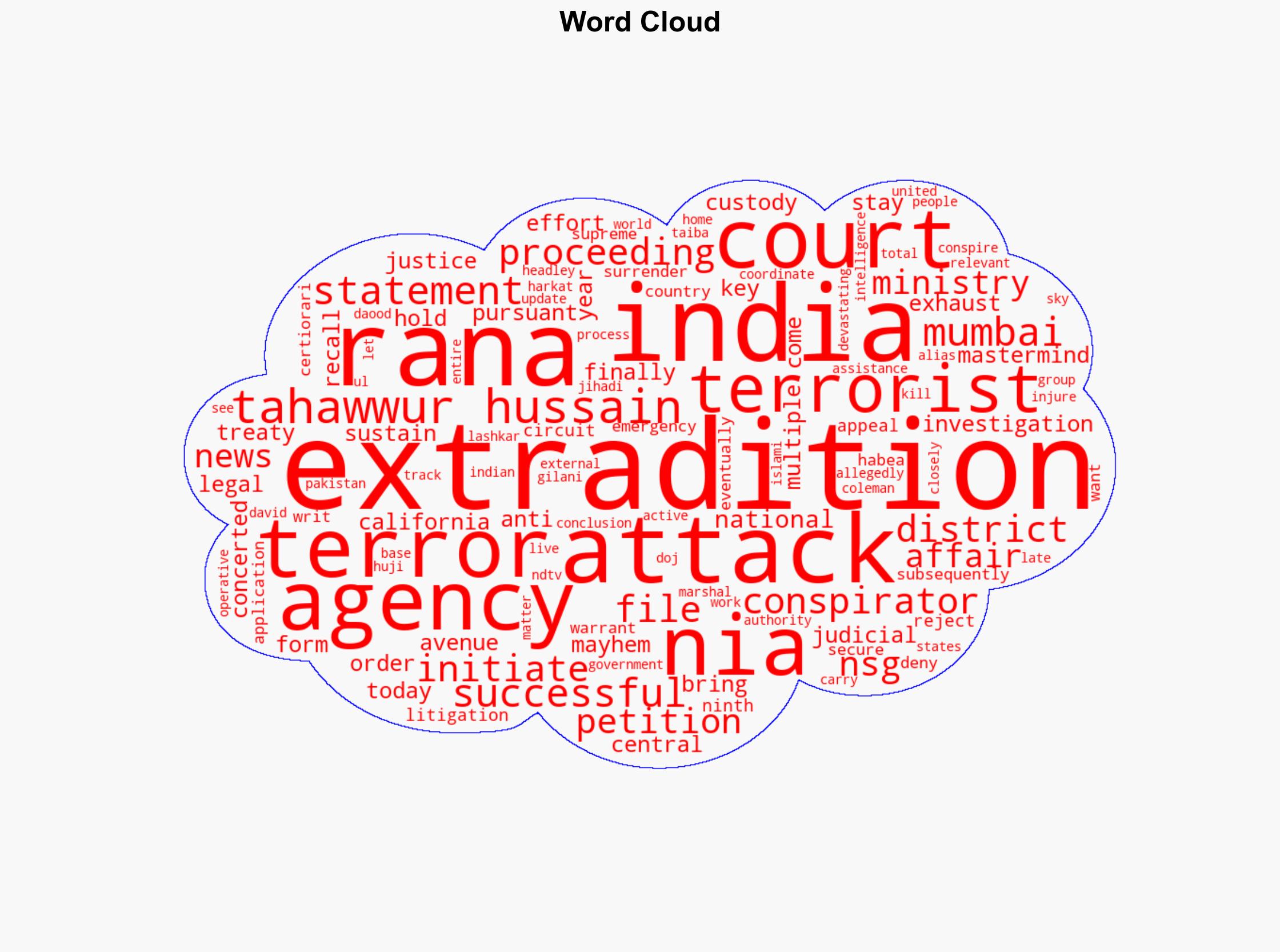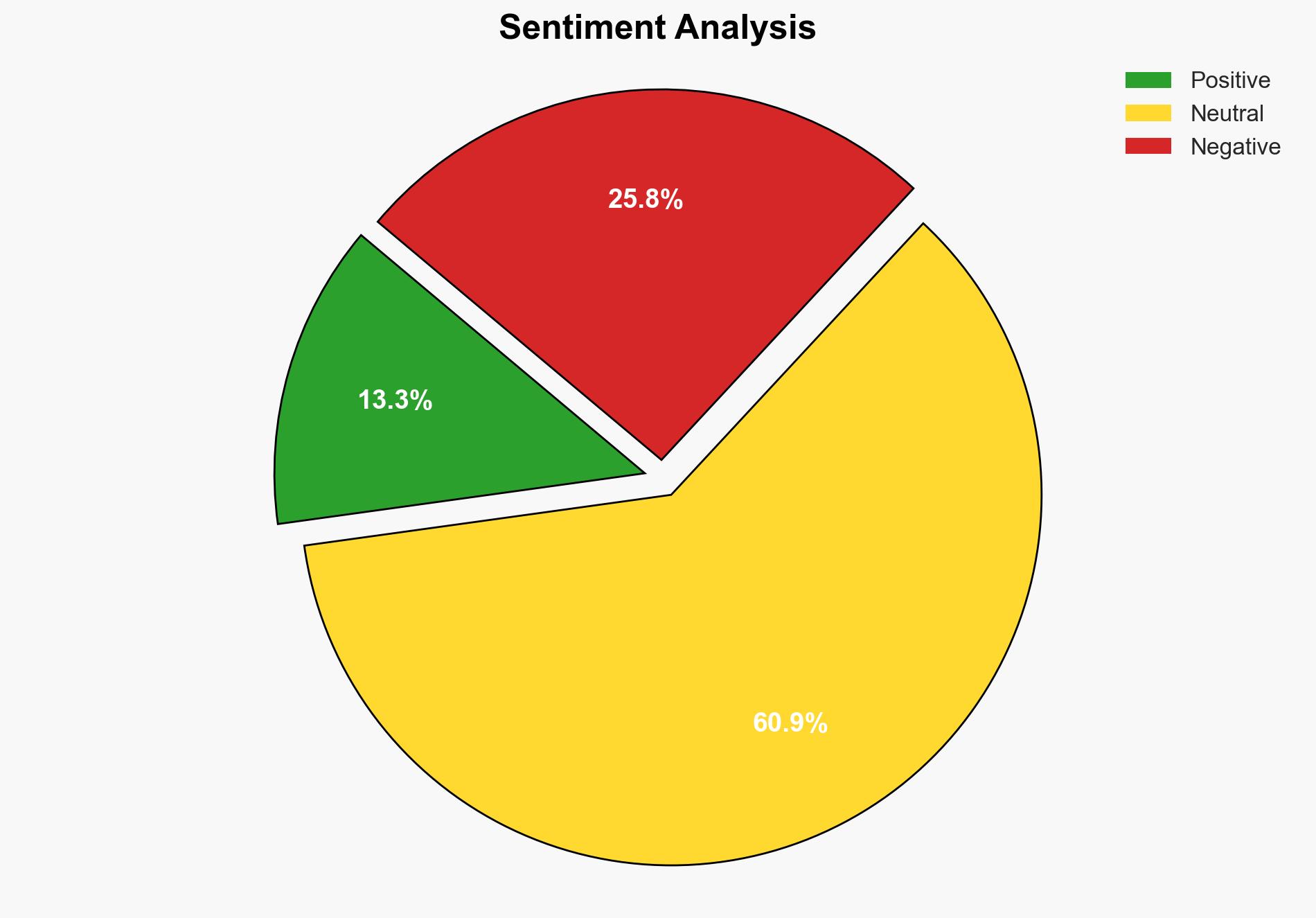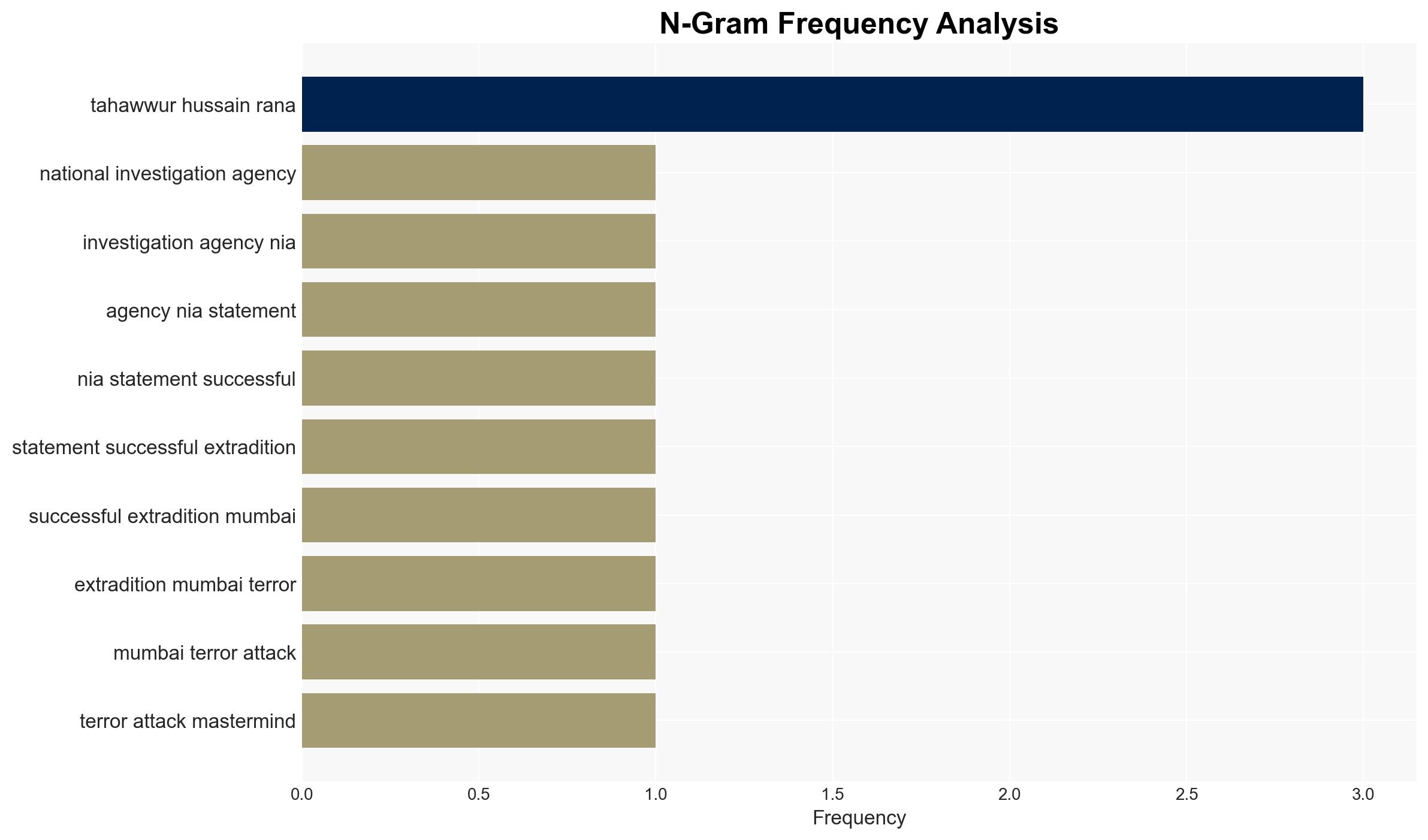Anti-Terror Agency NIA’s First Statement After Tahawwur Rana Extradition – NDTV News
Published on: 2025-04-10
Intelligence Report: Anti-Terror Agency NIA’s First Statement After Tahawwur Rana Extradition – NDTV News
1. BLUF (Bottom Line Up Front)
The successful extradition of Tahawwur Hussain Rana marks a significant victory in the fight against terrorism, following years of legal proceedings and international cooperation. This development underscores the effectiveness of the India-US Extradition Treaty and highlights the collaborative efforts of multiple agencies in bringing a key conspirator of the 2008 Mumbai terror attacks to justice. Stakeholders are advised to leverage this momentum to strengthen international legal frameworks and enhance intelligence-sharing mechanisms.
2. Detailed Analysis
The following structured analytic techniques have been applied for this analysis:
General Analysis
The extradition of Tahawwur Hussain Rana was a complex process involving multiple legal challenges, including appeals and petitions in the US judicial system. His collaboration with David Coleman Headley and operatives of Lashkar-e-Taiba and Harkat-ul-Jihadi Islami highlights the transnational nature of terrorism. The coordinated efforts of the US Department of Justice, Indian intelligence agencies, and ministries were crucial in overcoming these challenges. This case exemplifies the importance of sustained international cooperation in counter-terrorism efforts.
3. Implications and Strategic Risks
The extradition sets a precedent for future international legal proceedings against terrorists, potentially deterring similar actors. However, it may also provoke retaliatory actions from affiliated groups, posing risks to national security and regional stability. The case emphasizes the need for vigilant monitoring of terrorist networks and enhanced security measures to protect economic interests and civilian safety.
4. Recommendations and Outlook
Recommendations:
- Enhance international legal frameworks to expedite extradition processes for terrorism-related cases.
- Strengthen intelligence-sharing protocols between allied nations to preemptively identify and neutralize threats.
- Invest in technological advancements for surveillance and data analysis to improve counter-terrorism capabilities.
Outlook:
In the best-case scenario, the extradition will lead to increased international cooperation and a reduction in terrorist activities. In the worst-case scenario, it could incite retaliatory attacks by affiliated groups. The most likely outcome is a temporary increase in vigilance and security measures, with a gradual stabilization as legal and diplomatic efforts continue to evolve.
5. Key Individuals and Entities
The report mentions significant individuals and organizations involved in the 2008 Mumbai terror attacks and the subsequent extradition process:
- Tahawwur Hussain Rana
- David Coleman Headley
- Lashkar-e-Taiba
- Harkat-ul-Jihadi Islami




